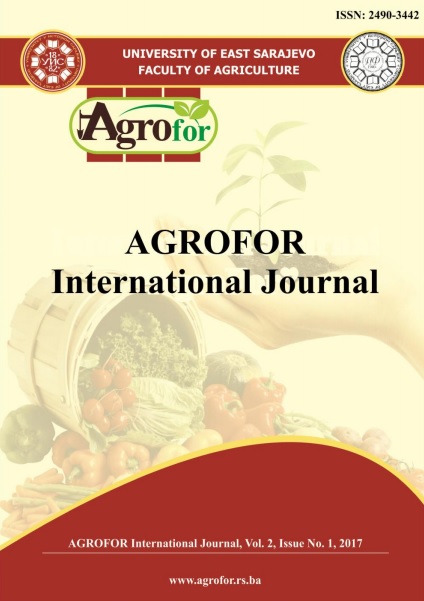CEREALS SEED LIFECYCLE
DOI:
https://doi.org/10.7251/AGRENG1701125GAbstract
Cereals seed lifecycle is considered as duration of a variety commercial use, or
period of having margin from variety market introduction till its withdrawal from
the market. In most of cases, it coincides with average period of variety listing. But
available National Registers includes list of approved varieties, and don’t keep
tracks about withdrawal ones. The article goal was to check author's methodology
of calculation of actual cereals seed lifecycle. National Registers of Commonwealth
of Independent State (CIS) countries (Belarus, Kazakhstan, Russia, Ukraine)
compare to German Bundesortenamt were used as data base. It was assumed
thatnumber of varieties, been listing within five years period, is constant; therefore
share of listed varieties in older groups shows probability of a variety listing within
any group. It was found, that winter wheat seed commercialization period lasts
about 24 years in Kazakhstan, 14 in Russia, 13 in Germany, 12in Ukraine and 9in
Belarus. Similar trends are calculated in other cereals (spring oat, spring wheat,
spring barley, and winter rye). The higher yields are, the shorter variety lifecycle,
the better seed exchange rate (certified seeds share), and even return of breeding
investments. Seed lifecycle is under influence of such factors as average crop
multiplication rate, seeding rate, crop margin, yields, operational risks, acreage,
etc. Markets of high marginal crops with shorter seed lifecycle are attractive for
international seed companies expansion.

